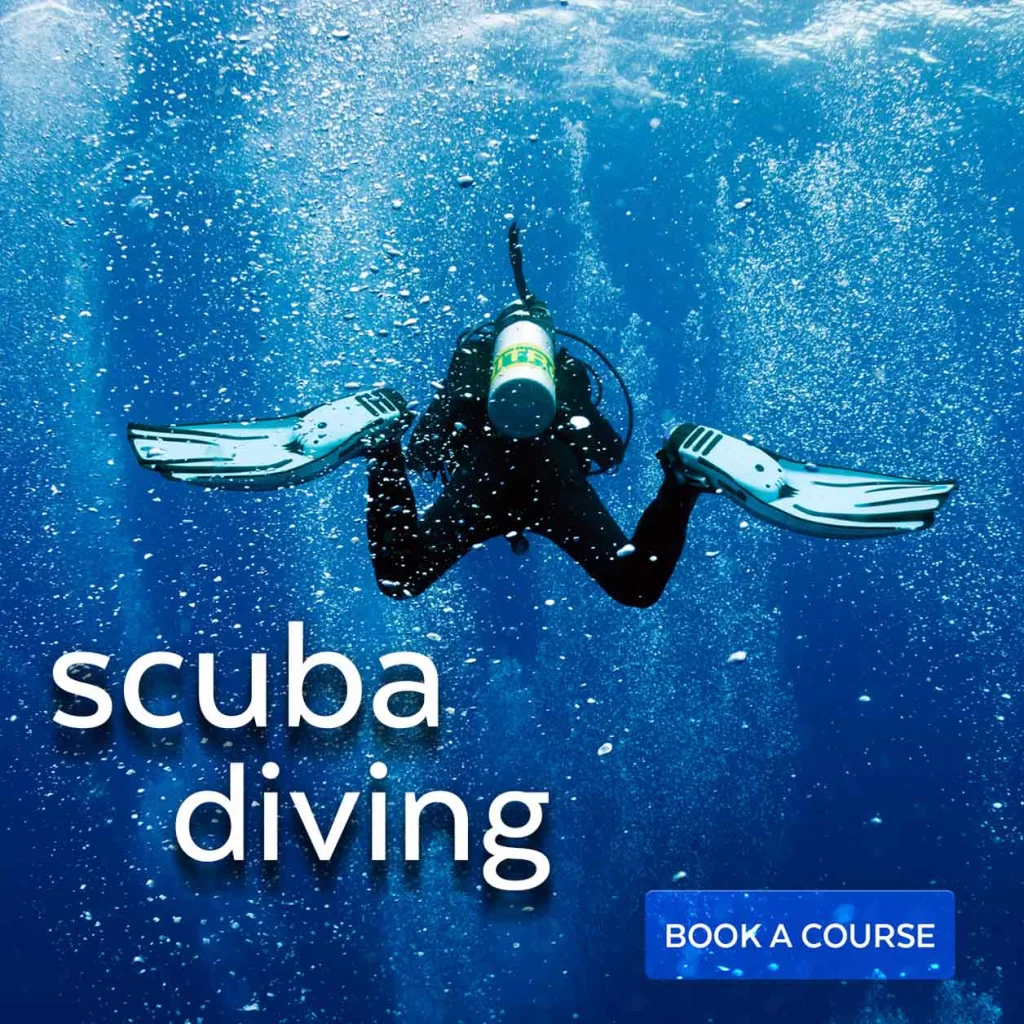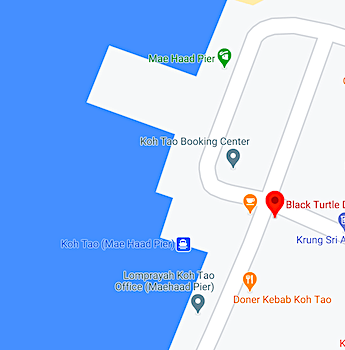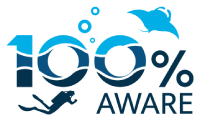Coral Taxonomy & Identification on Koh Tao
Learn about Coral Taxonomy & Identification in Thailand
Our Koh Tao Coral Taxonomy & Identification course is an essential marine conservation course for divers who want to learn more about Coral Reefs.
Koh Tao is an ideal location for aspiring conservationists and divers to learn due to its marine life abundance and diversity, underwater topography and a warm, tropical climate.

Diverse Marine Life
With over 8 kilometres of coral reefs surrounding Koh Tao, the dive sites offer our students the perfect learning environment.
Our extensive conservation course curriculum is available to recreational divers and pro-level divers however, divers must have a minimum Advanced diver rating and excellent Buoyancy skills.
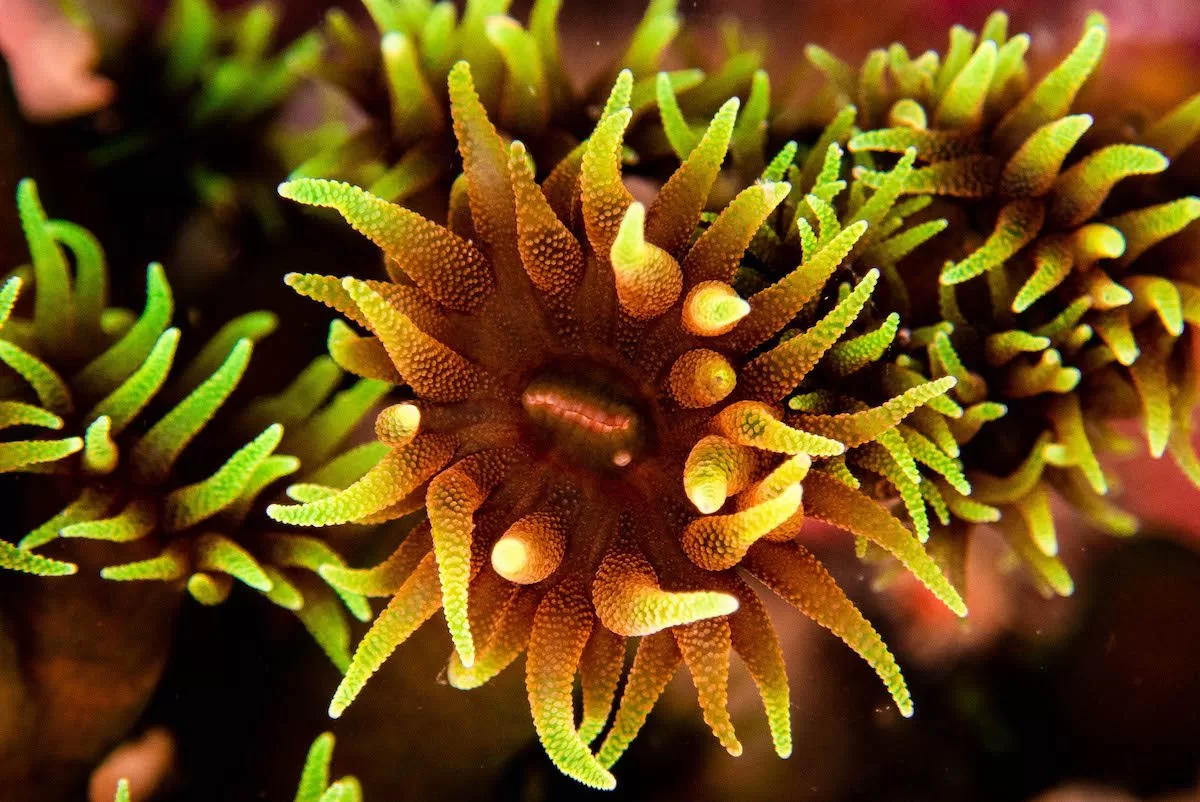
Explore the Coral Reefs of Koh Tao
For beginner divers and non divers, who have an interest in marine conservation, we offer PADI Open Water course & Advanced Open Water course with a Buoyancy specialty or a minimum Buoyancy workshop.
Our students must meet the minimum pre-requisites to be able to participate in our conservation course curriculum.
This ensures we can focus on the scientific tasks required through the courses and it helps to protect the marine environment.
What is Coral Taxonomy & Identification?
Coral taxonomy is the scientific classification and study of coral species. It involves identifying, describing, and naming different types of corals based on their physical characteristics, genetic makeup, and evolutionary relationships.
Coral taxonomy is an important field of study because it helps scientists understand the diversity of coral species and their ecological roles in marine ecosystems.
It also helps in the conservation and management of coral reefs, which are threatened by various human activities such as overfishing, pollution, and climate change.
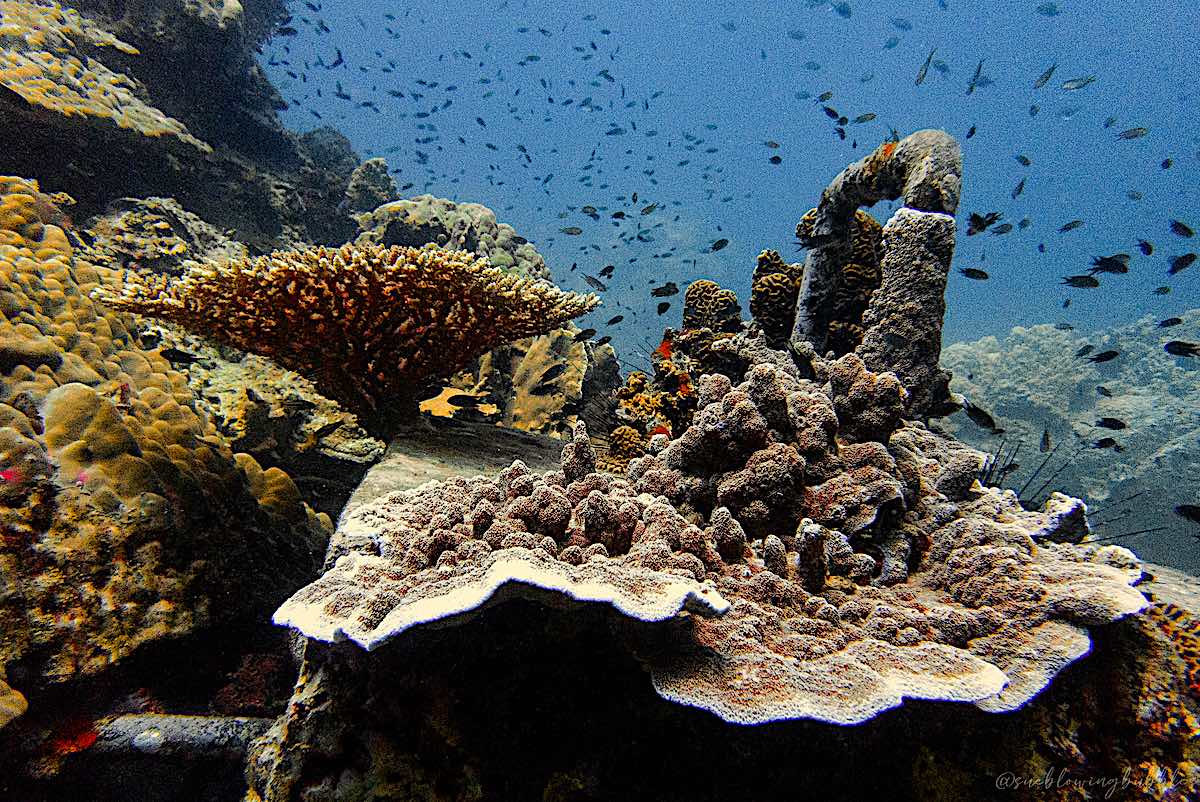
Learn about Hard Corals, the treasure of the oceans
Coral taxonomy is a multidisciplinary field that involves expertise in biology, genetics, ecology, and other related fields.
As scuba divers, we have an important role to play in coral taxonomy, as it allows researchers, scientists and aspiring marine conservationists, to observe and study corals in their natural habitat.
Scuba divers can collect samples, take photographs, and record data on coral species diversity, distribution, and abundance.
This information can then be used to identify and classify different types of corals and to understand their ecological roles in the marine ecosystem.
Scuba diving is also important for monitoring the health of coral reefs. Divers can assess the condition of coral reefs, identify areas of damage or degradation, and monitor changes over time. This information is crucial for conservation efforts and for developing management strategies to protect coral reefs.
However, it is important to note that scuba diving can also have negative impacts on coral reefs, if divers are poorly trained and through irresponsible behaviour.
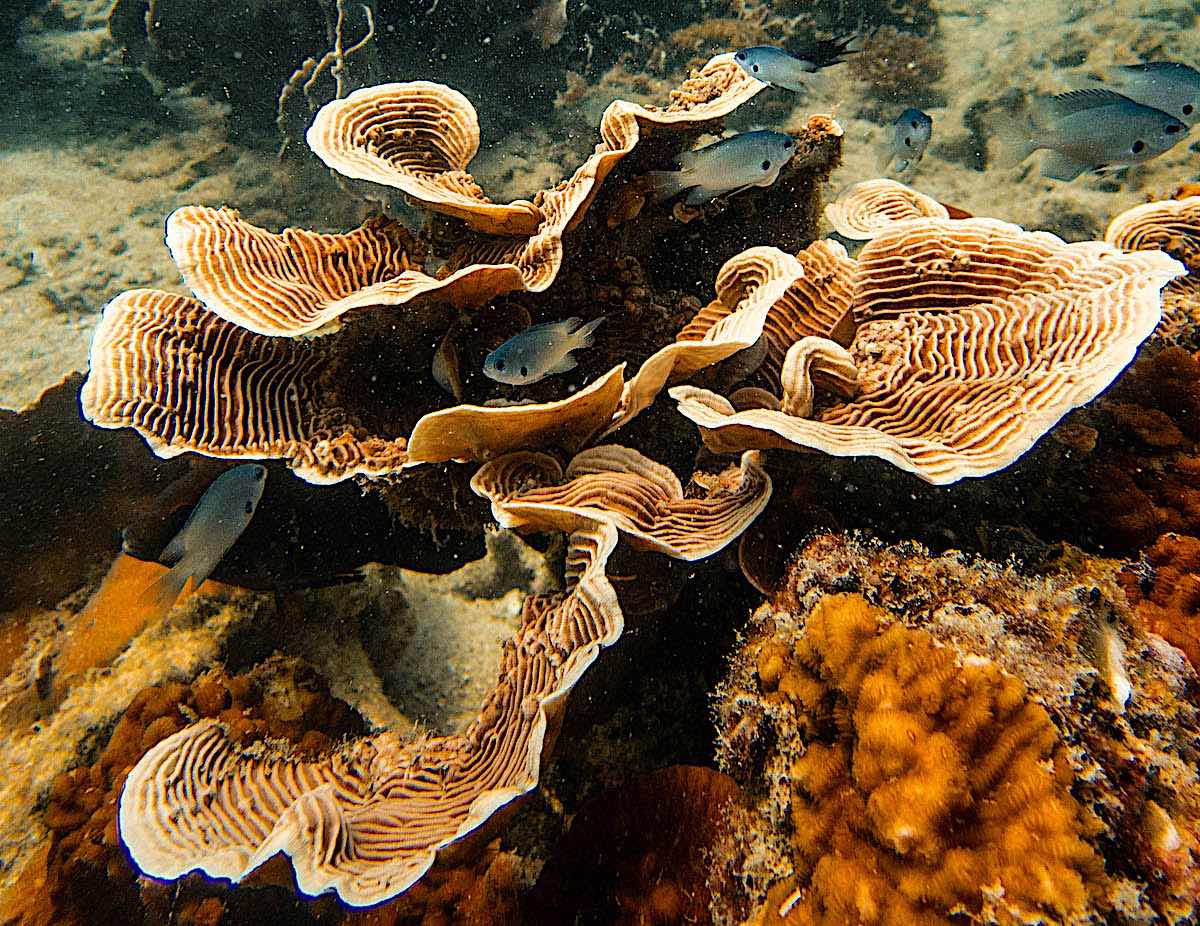
Coral Taxonomy and Scuba Diving
Our diver pre-requisites and training ensures divers are competent and confident with their buoyancy and diver skills.
Divers are trained to minimize their impact on the environment, to avoid touching or damaging corals, and to follow responsible diving practices to protect the delicate ecosystem they are exploring.
Identifying corals according to taxonomic descriptions is an important part of any advanced coral reef monitoring program as it allows researchers to track changes in coral populations over time and to better understand the ecological dynamics of coral reefs.
Coral Reefs are incredibly diverse ecosystems, with thousands of species of corals and other organisms living in close proximity.
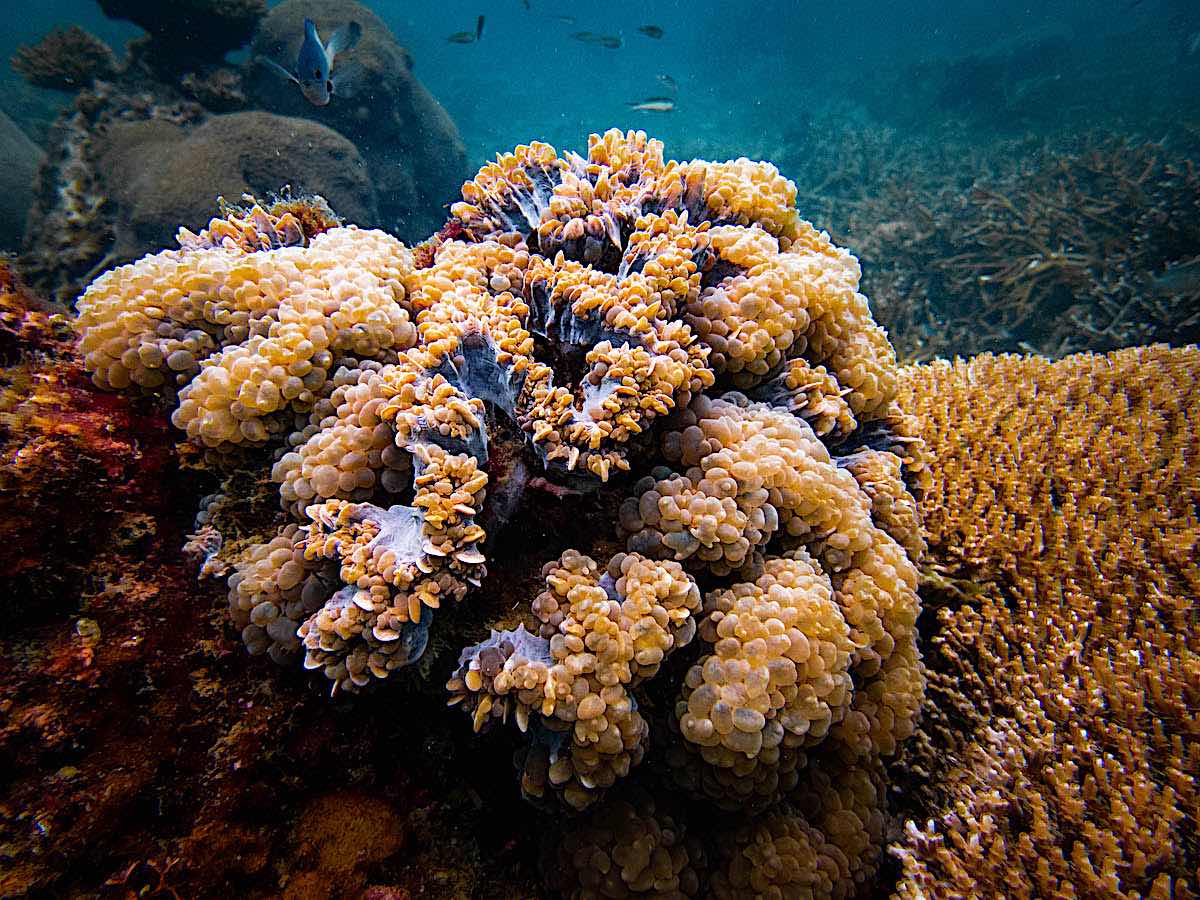
Diverse Marine Ecosystems
Each species has its own unique ecological niche, and changes in the abundance or distribution of one species can have a cascading effect throughout the system.
Monitoring diversity and abundance of Hard Corals offers valuable insights into the health of marine ecosystems.
By identifying corals according to taxonomic descriptions, researchers can track changes in abundance and distribution of different coral species over time.
The information can then be used to identify patterns and trends in coral population, such as shifts in species dominance or changes in community structure.
Identifying corals at their taxonomic level is also a requirement for biological or peer reviewed research studies and can also provide lots of important information such as:
- Biodiversity of corals in a specific area
- Changes in biodiversity over time
- Identifying target species
- Monitoring threats such as bleaching, predation or disease
- Monitoring corals for spawning
- Monitoring corals for Advanced research or restoration projects
- Identifying rare or endangered species of corals
- Improving our understanding of coral population dynamics and changes
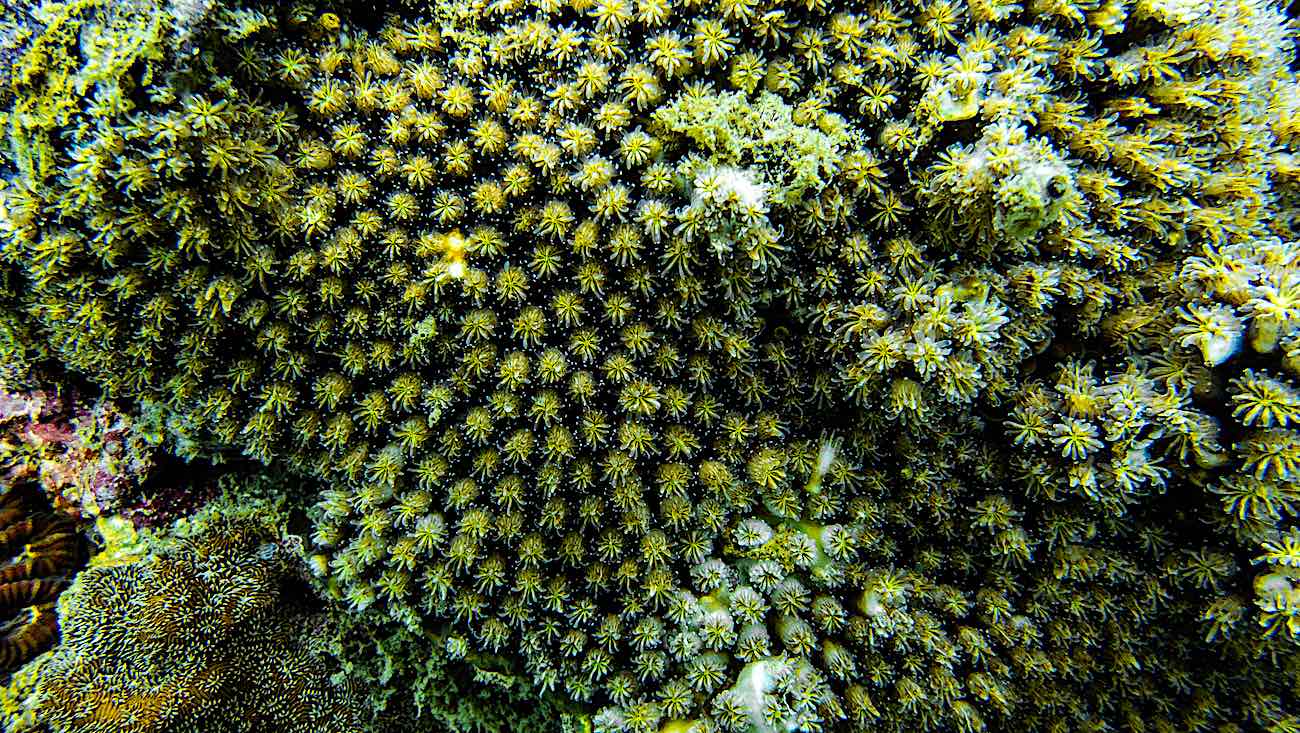
Improve your scientific knowledge & understanding of Hard Corals
Furthermore, understanding the taxonomic identities of different coral species is essential for accurately measuring their ecological roles and contributions to the eco system.
Some coral species are important habitat or reef builders whilst others are more efficient at nutrient cycling or sediment stabilization.
Not only is identifying corals incredibly important to the scientific community, but many students find identifying corals challenging and rewarding.
Knowing which species are present and how they interact with each other provides useful insights into how the ecosystem as a whole is functioning.
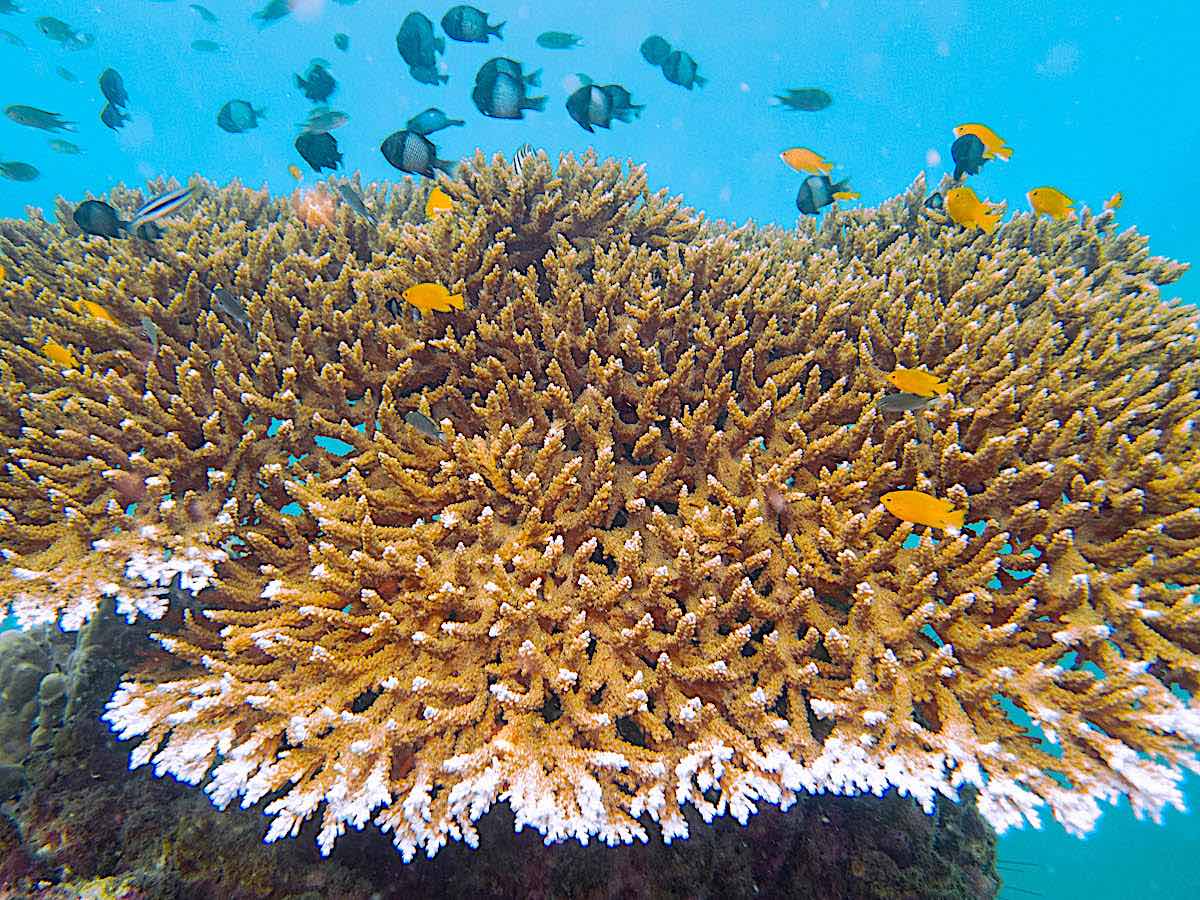
Over 800 Identified Coral Species
There are over 800 Hard coral species that have been identified and it is estimated there are as many as 6,000 species of corals on the planet today.
For divers, identifying corals can increase the enjoyment of every dive you make and for scuba divers that take the time to learn the basics of coral taxonomy, it can easily become something you develop a genuine passion for.
Conservation Diver Coral Taxonomy & Identification course
The Conservation Diver Coral Taxonomy & Identification course is a great introduction for students to learn about coral Identification and taxonomic classification.
Divers taking this course will learn:
- How to identify corals underwater based on their anatomical features and on land based on their skeletal features
- Tips & tricks to remembering their names and how to identify them underwater
- How to ID the most common species in the ocean around Koh Tao and to give you the tools to learn the species at your next diving destination
To enroll on the Coral Taxonomy & Identification course an individual must first have completed the Ecological Monitoring Program course.
The Ecological Monitoring Program is at the center of the Conservation Diver training, education and research program, and as such this course is a prerequisite for many of the other courses offered by Conservation Diver.
The EMP course provides divers with hands on experience that can be applied to future academic or professional pursuits.
Completing this course is a rewarding and enriching experience for everyone, regardless of whether you are pursuing a career in this field or simply have a personal interest in marine life and the oceans.
Those who master the skills and knowledge on the EMP course are encouraged to then go on to achieve the Advanced Ecological Monitoring Program certification.
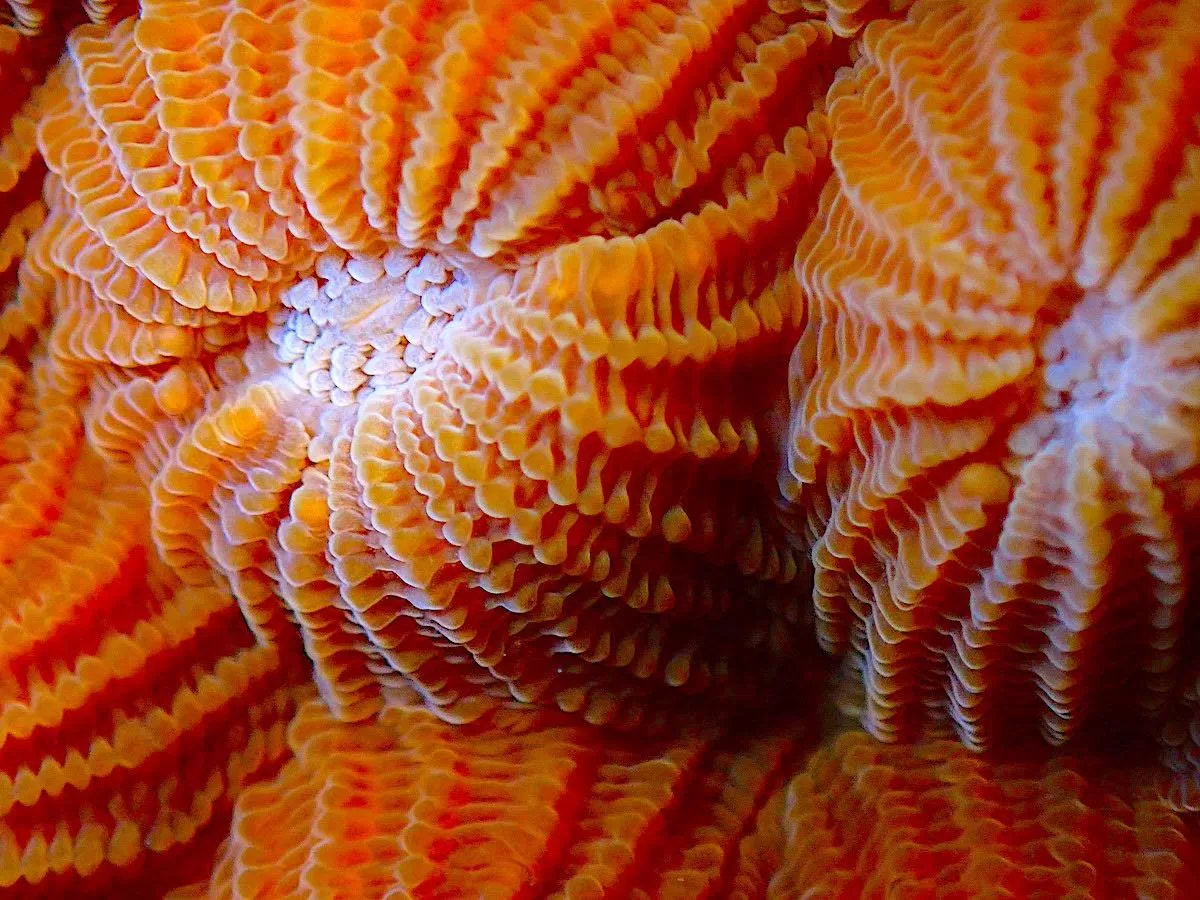
Enhance Professional Development as a Coral Reef Researcher
The Advanced Ecological Monitoring Program certification is awarded to students who show exceptional research skills.
Student divers must already be an EMP diver and have completed Conservation Diver Specialty training courses in Coral Taxonomy & Identification, Coral Disease & Compromised Health and three other selected courses.
Reef researchers and students all round the world use similar programs to collect data, meaning the Advanced Ecological Monitoring Program will help with your professional efforts too.
By increasing awareness and involvement, we can decrease our impacts on coral reefs and provide solutions to protecting and restoring the reefs around the globe and help to make a difference.
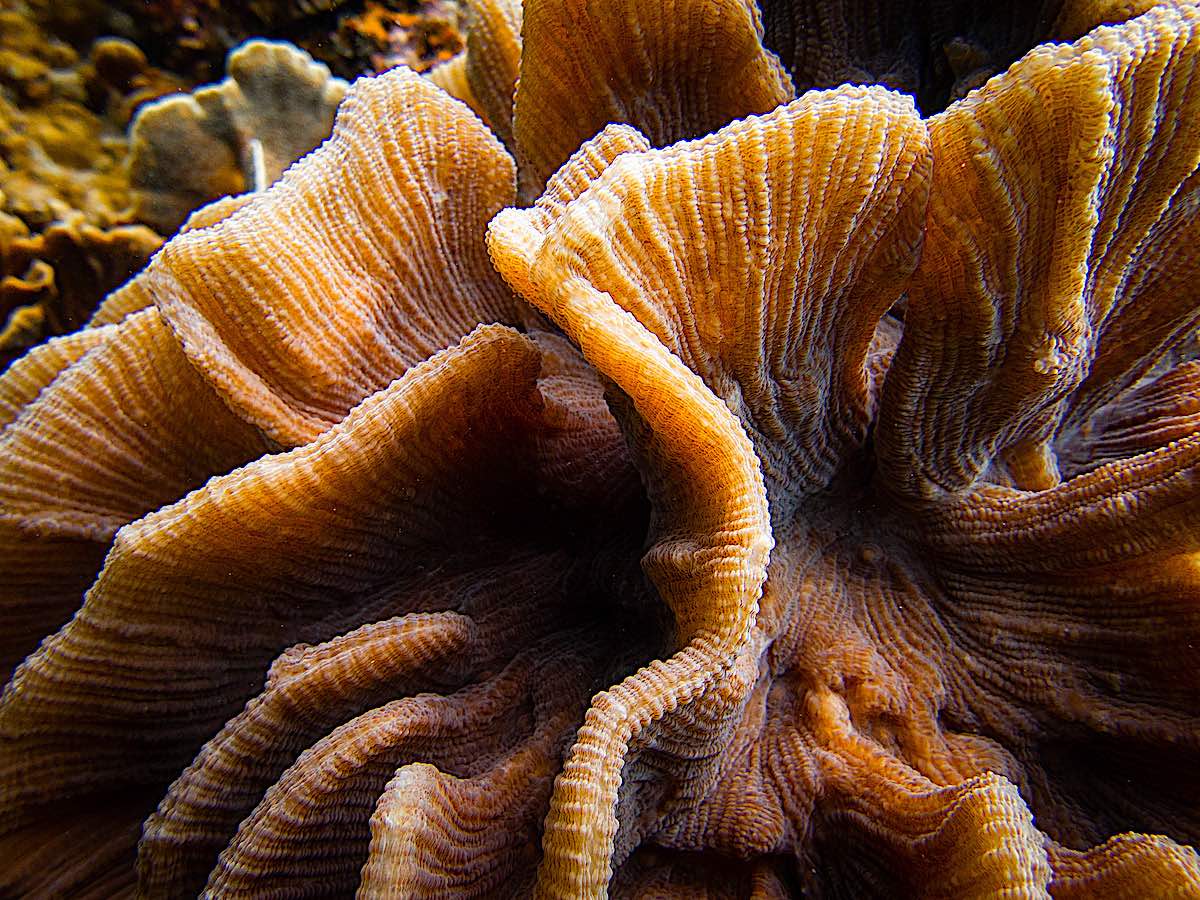
Coral Restoration Projects
Most successful coral restoration projects have been achieved by small groups and local communities, rather than governments or policy makers and Black Turtle Dive is continuing this tradition, doing as much as we can to protect the local environment on Koh Tao in the Gulf of Thailand.
After completing this course, students will know how to perform the reef research methods of the Ecological Monitoring Program and can continue to help with data collection.
You will gain knowledge about coral reefs and their inhabitants. Students will learn how to identify indicator fish, invertebrate species and substrate types and gain experience working with equipment underwater. You will also practice buoyancy and underwater navigation skills.
Once you have successfully completed the training you can assist on our monthly EMP courses, and participate in EMP’s in other areas of the world through our network of Conservation Diver Centers.
Hard Coral Taxonomy and Identification course includes:
- 1 day program
- 2 training dives
- Hard Coral Taxonomy and Identification course e-learning manual
- Conservation Diver certification
- Rental of all scuba equipment
- FREE use of Dive Computer
- Log book
- Black Turtle Dive Customer (and environmental) promise
To enroll on the Hard Coral Taxonomy and Identification course a diver or a snorkeler must be:
- 12 years of age or older
- A competent swimmer if performing the course snorkeling
- Certified as an Advanced diver
- Have completed the Ecological Monitoring Program course and be certified as a Conservation Diver EMP Diver
All Conservation Diver Hard Coral Taxonomy and Identification course divers must demonstrate proper diving abilities at an advanced level and be proficient in buoyancy and self-awareness.
Our in-house PADI diver training courses are conducted to a high standard of training with a focus on conducting water skills neutrally buoyant.
If you have trained elsewhere an assessment will be conducted by our instructor on your buoyancy skills and a refresher may be required or further training.
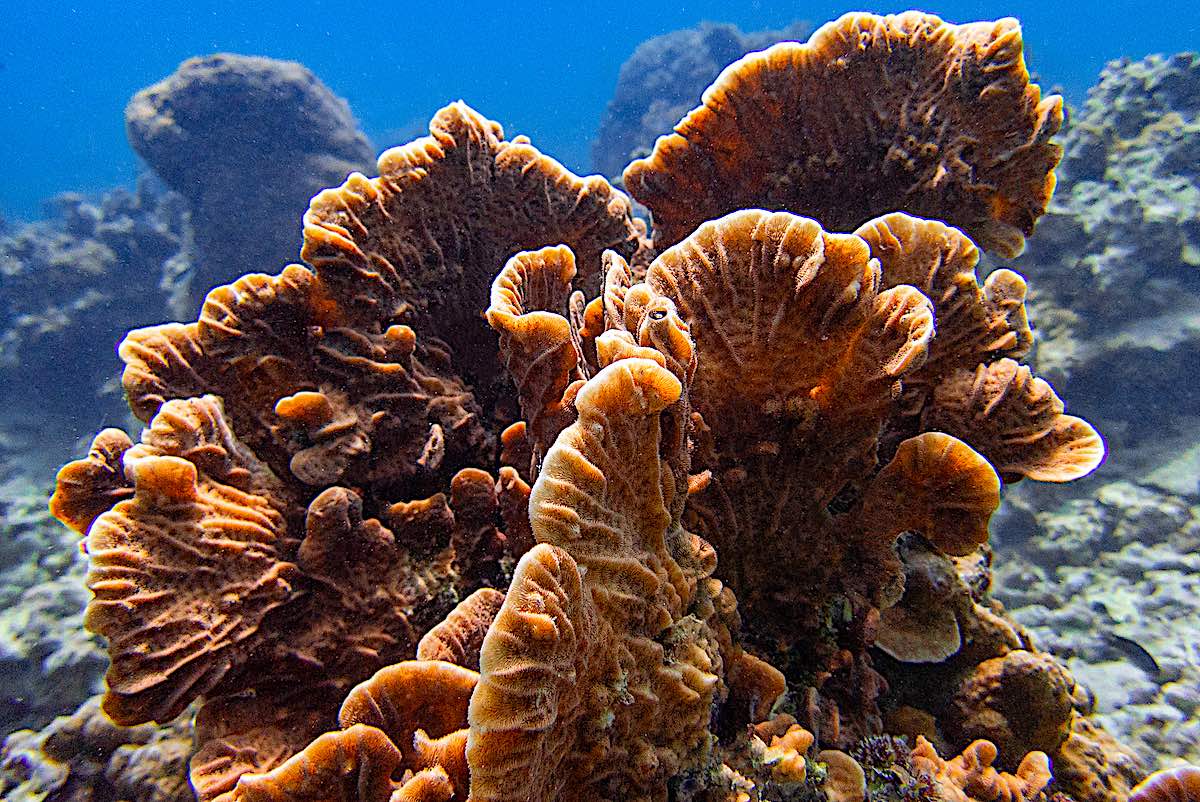
Coral Taxonomy Course Details
- Attend the Instructor led presentation on Hard Coral Taxonomy and Identification
- Practice identifying corals on land using the EMP Manual or Coral Finder Guide (BYO Guides)
- Complete the Hard Coral Taxonomy and Identification e-learning course
- Complete the Hard Coral Taxonomy and Identification final exam and score at least 80%
- Attend the practical briefing prior to the Coral Taxonomy and identification dive
- Perform 1 survey dive specifically taking data on coral genera
- Be able to accurately identify at least 10 of the most common coral genera to the region
Coral Taxonomy Course Learning
- Be familiar with coral anatomy and skeletal morphology, in particular, the diagnostic features used in identification.
- Understand the taxonomic system and organization for classifying hard corals
- Learn the names of coral families and genera, and tricks to remember the Latin names.
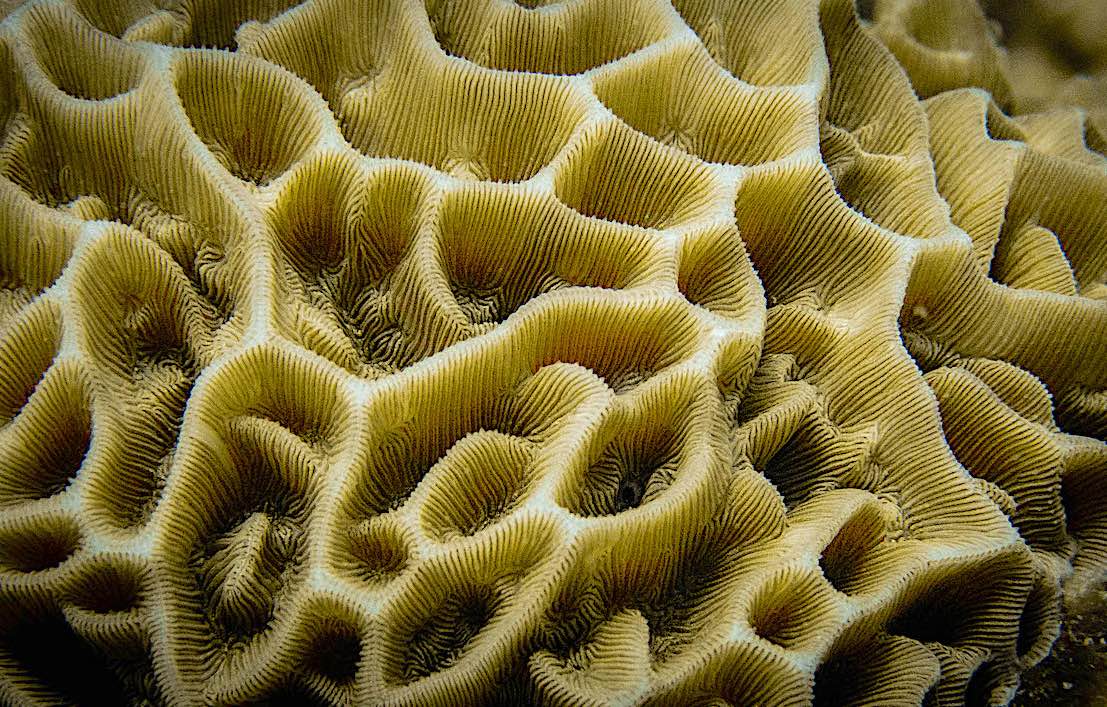
Coral Taxonomy Knowledge Development
Our knowledge development section of the Coral Taxonomy & Identification course is divided between independent study (E-learning) and a classroom knowledge development presentation as well as pre dive briefings, and post dive debriefings led by one of our Conservation Diver Instructors.
E-learning covers five sections and the following subjects:
Coral Taxonomy Course Standards & Requirements
- Prerequisites
- Standards
- Requirements
Introduction to Coral Families and Genera
- A Brief History of Hard Corals
How to Identify Hard Corals
- Coral Anatomy
- Coral Skeletal Features
- Coral Colony Formation
- Budding of New Polyps
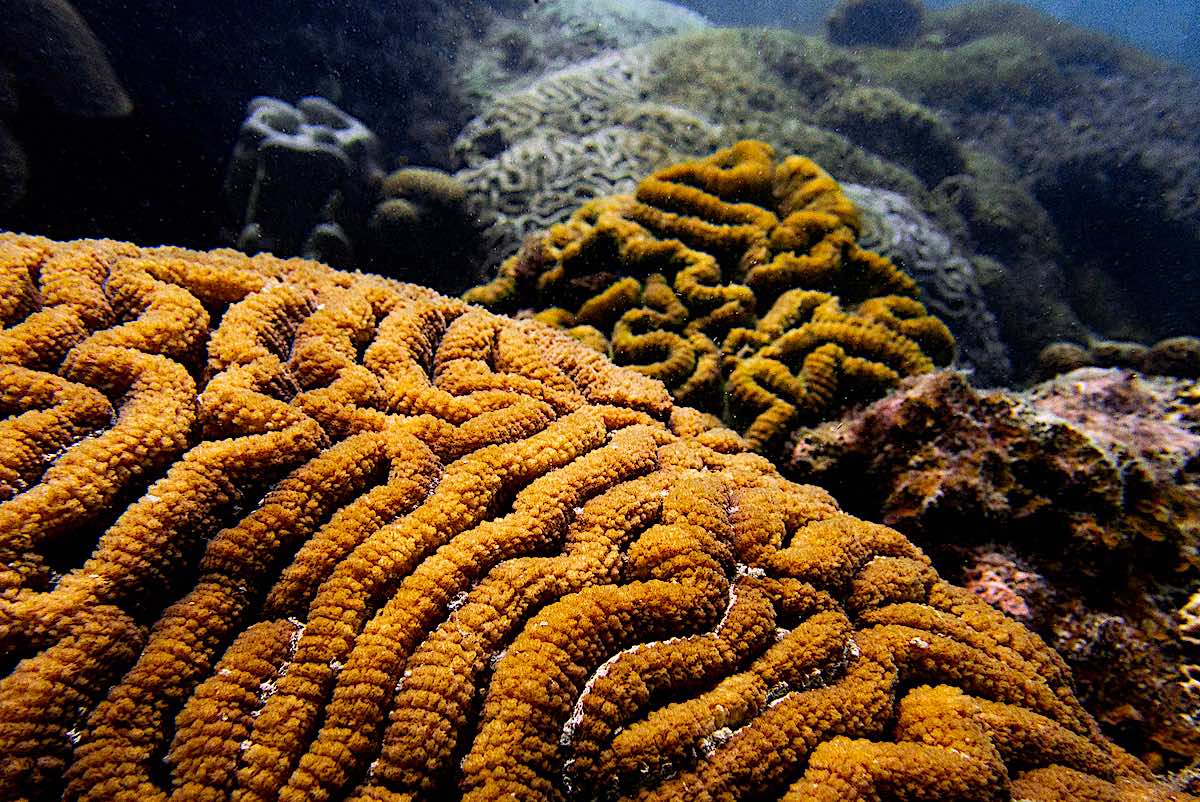
Identifying Corals for the Ecological Monitoring Program
- Encountering new corals
Common Coral Families
- Acroporidae
- Agariciidae
- Dendrophylliidae
- Diploastraeidae
- Faviidae
- Lobophylliidae
- Merulinidae
- Montastraeidae
- Pocilloporidae
- Poritidae
We recommend that you complete all independent e-Learning before you start the Coral Taxonomy & Identification course.
However, if you are signing up late, or have been unable to complete the e-learning prior to arrival, we can assure you complete prerequisite study in a manner that supports the water work.
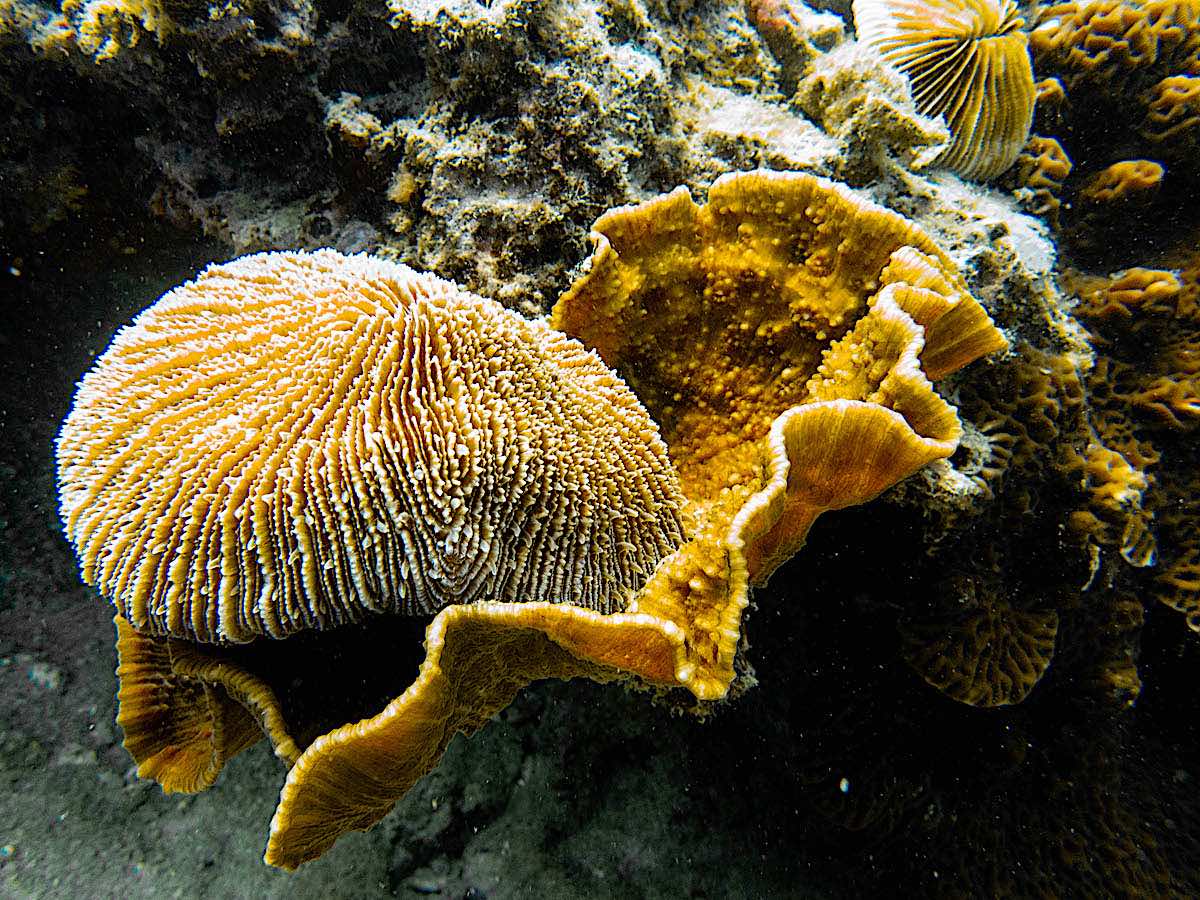
Knowledge Development Presentation & Classroom
- EMP Parameters
- The Importance of Genera Monitoring
- Hard Coral Classification
- Sub Class: Hexacorallia
- Order: Scleractinia
- Hard Coral Evolution
- Hard Coral Anatomy
- Diversity of Coral Colony Form
- Asexual budding in coral
- Coral Skeletal anatomy
- Wall & Columella structure
- Continuity of Costae
- Septal & Paliform lobes
- Today’s Genus (18 Genus to Identify)
- Diagnostics
- What looks like Scleractinian?
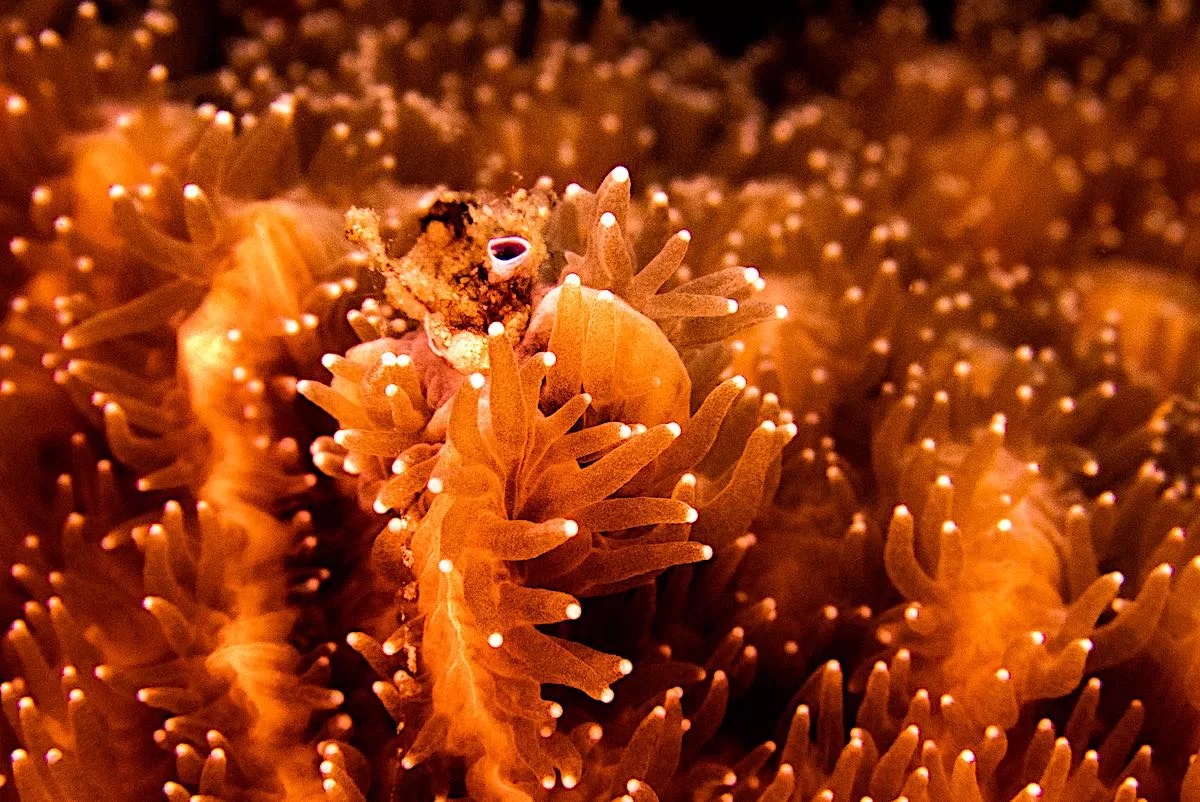
Water Skills Development & In-water Workshops
- Buoyancy assessment
- Perform 1 coral taxonomy identification dive learning coral anatomy and skeletal morphology
- Perform 1 survey dive specifically taking data on coral genera – can either be the EMP substrate dive, coral disease survey, or a quadrat survey
- Be able to accurately identify at least 10 of the most common coral genera to the region
Completion of the Coral Taxonomy & Identification course
- Complete all e-Learning modules
- Attend the Instructor led Coral Taxonomy & Identification course knowledge development presentation
- Complete ID quizzes during Instructor led Coral Taxonomy & Identification course knowledge development presentation
- Successfully complete the Coral Taxonomy & Identification final exam
- Complete 2 Coral Taxonomy ID dives
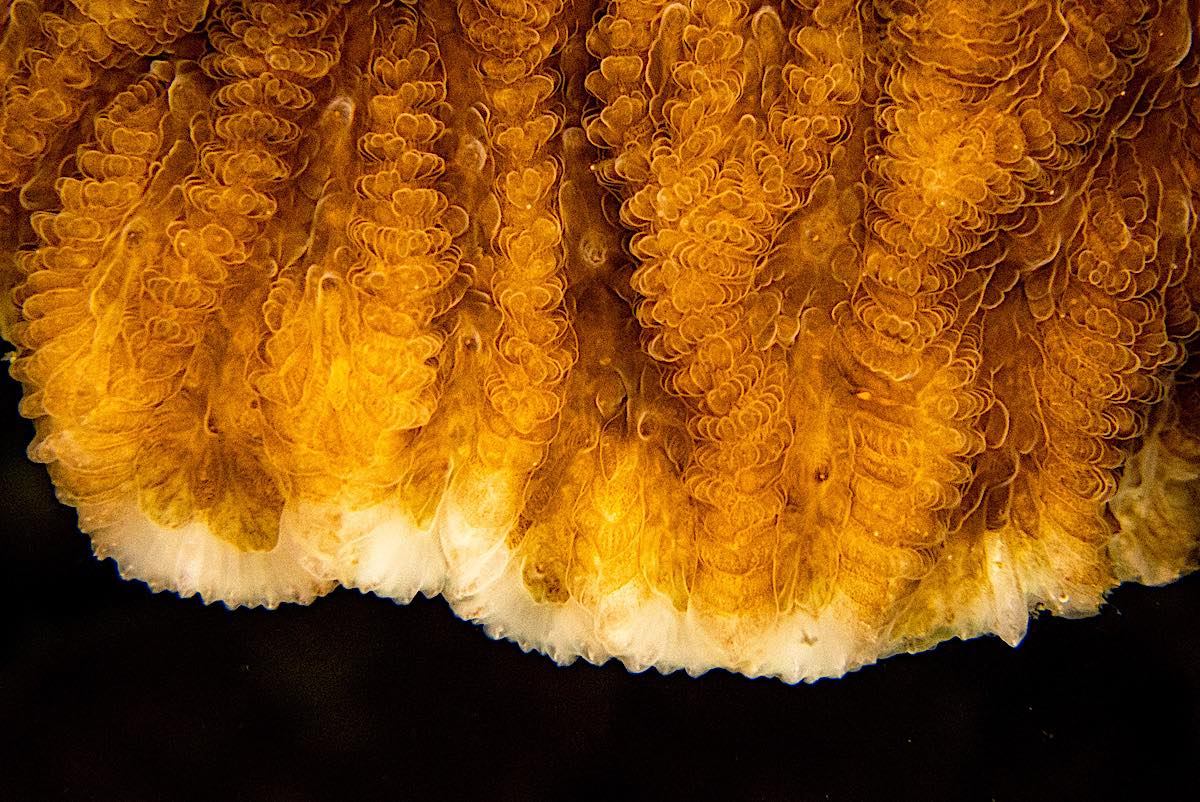
Coral Taxonomy & Identification course: 6,000 baht
At Black Turtle Dive we take our customer promise very seriously and we wish to pass on to you, the highest quality of training and service.
The marine conservation program at Black Turtle Dive was launched in 2022, having evolved out of Eco Koh Tao, one of the longest running environmental organisations on the island.
Eco Koh Tao was founded by Nathan Cook, a master of Marine Science from Southern Cross University, Australia and Matt Bolton, a PADI Course Director who first brought Reef Check to the island in 2007 and founded Black Turtle Dive.
Eco Koh Tao planned and developed Junkyard Reef, Koh Tao’s first and arguably most successful artificial dive sites. This work started in 2006 and continues to this day and Junkyard Reef hosts thousands of open water training dives every year, taking pressure off existing natural dive sites around Koh Tao.
Eco Koh Tao has also worked hard over the years monitoring reef health and being involved in multiple restoration projects. This work included being an integral part of the Save Koh Tao organization that spearheaded Buoyancy World, an island wide initiative to develop a second artificial reef in 2009.
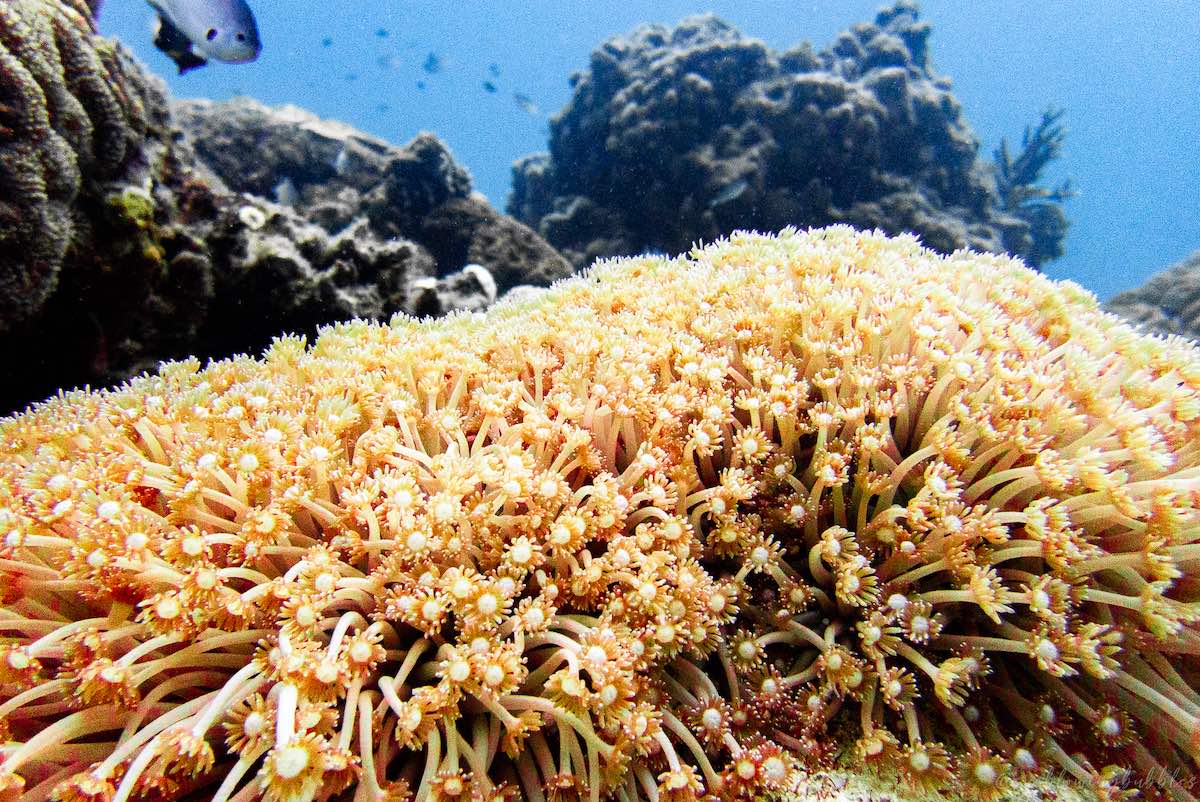
Reef Ecology And Conservation Training program
Black Turtle Conservation symbolises the unification of Koh Tao’s two original ocean researchers, Nathan and Chad Scott. Chad founded Conservation Diver on Koh Tao in 2014, following 6 years of development work at his NHRCP program.
Conservation Diver is now a world leader in marine conservation education and has certified thousands of ocean enthusiasts over the past decade.
Eco Koh Tao and NHRCP worked towards mutual goals for many years, however, the program at Black Turtle Dive with deep local knowledge and a global conservation vision, combines to form a best-in-class Reef Ecology And Conservation Training program (REACT).
The Conservation Diver global network extends across 11 locations, with 50+ instructors, teaching over 35 different marine science courses, bound together in the mission to train the next generation of marine conservationists.
Black Turtle Conservation are proud to be part of this shared vision. By working together in this way, we are able to benefit from data collaboration and the vast knowledge shared between a large group of experts in varying fields.
No other network in the world exists that connects conservation programs in such a way, which gives our students the benefit of being part of a movement of research and conservation much bigger than one single program of work.
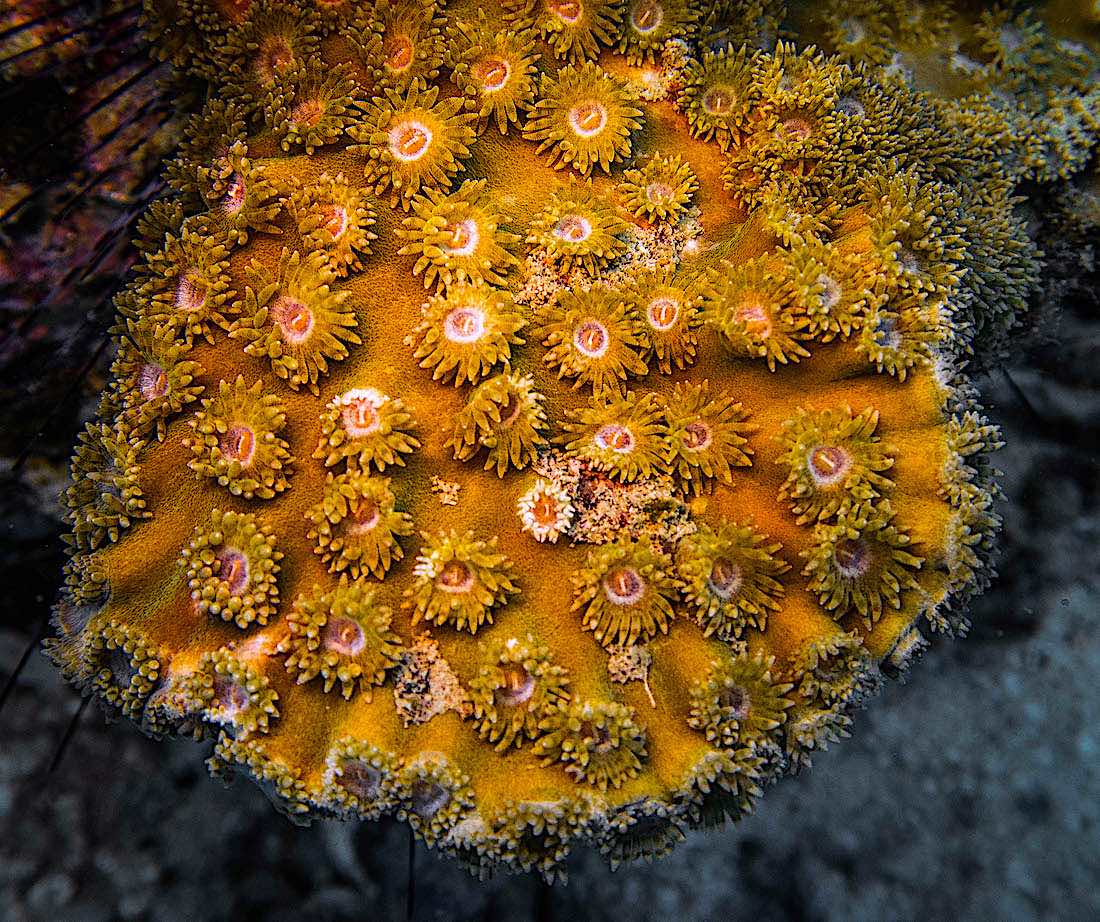
Coral Taxonomy & Identification Course Schedule
Coral Taxonomy & Identification course is scheduled over 1 day
Day 1:
- Orientation
- Coral Taxonomy & Identification knowledge development presentation
- Coral Taxonomy ID Quizzes (during presentation)
- LUNCH
- Buoyancy check
- Dive 1: Coral taxonomy identification dive focused on learning coral anatomy and skeletal morphology
- Dive 2: Coral taxonomy survey dive specifically taking data on coral genera – can either be the EMP substrate dive or a quadrat survey
Coral Taxonomy & Identification course on Koh Tao
Let’s look at the Coral Taxonomy & Identification course in more detail.
Orientation & Knowledge Development
As soon as you sign up, we will send your Coral Taxonomy & Identification course e-learning manual.
Once you have redeemed your access code you can start working your way through the e-learning and we recommend you complete the e-learning prior to the course.
You will start the Coral Taxonomy & Identification course with an Orientation.
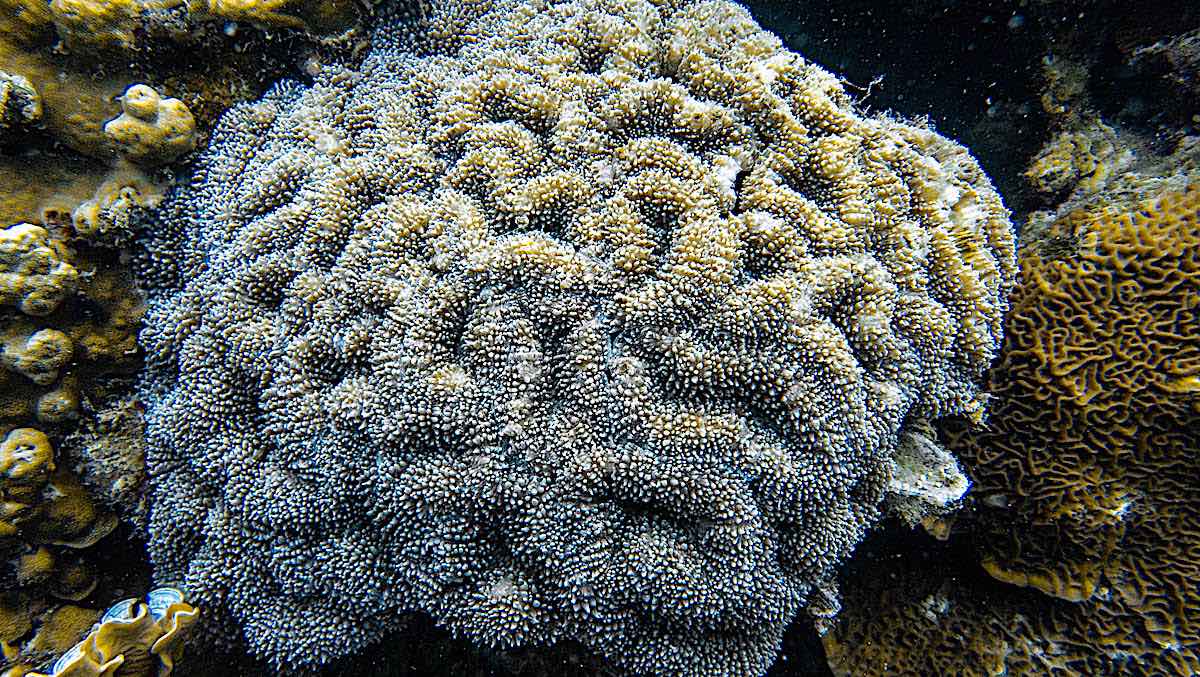
Coral Taxonomy & E-learning Module
This includes completing all required paperwork; Release of Liability/Assumption of Risk/Non-agency Disclosure & Acknowledgment Form, Student survey, Student Responsibilities Agreement, Scientific Diving Acknowledgment Agreement, Standard Safe Diving Practices Statement of Understanding and Medical Statement (RSTC Medical form).
As you can see from the schedule above the Coral Taxonomy & Identification e-learning knowledge development comprises of 5 modules.
Each module has a corresponding e-learning section and ideally this is completed before the Instructor led presentation.
The instructor led knowledge development session is scheduled to precede ‘in water’ skill development and survey training dives and will cover and elaborate on the 5 sections you completed during the e-learning.
Additional dive and theory reviews and feedback are scheduled outside of the schedule, as and when required with each individual candidate.
You will be given a Coral Taxonomy Identification quiz during the classroom presentation, and prior to the survey dives. You can complete the final exam prior to certification.
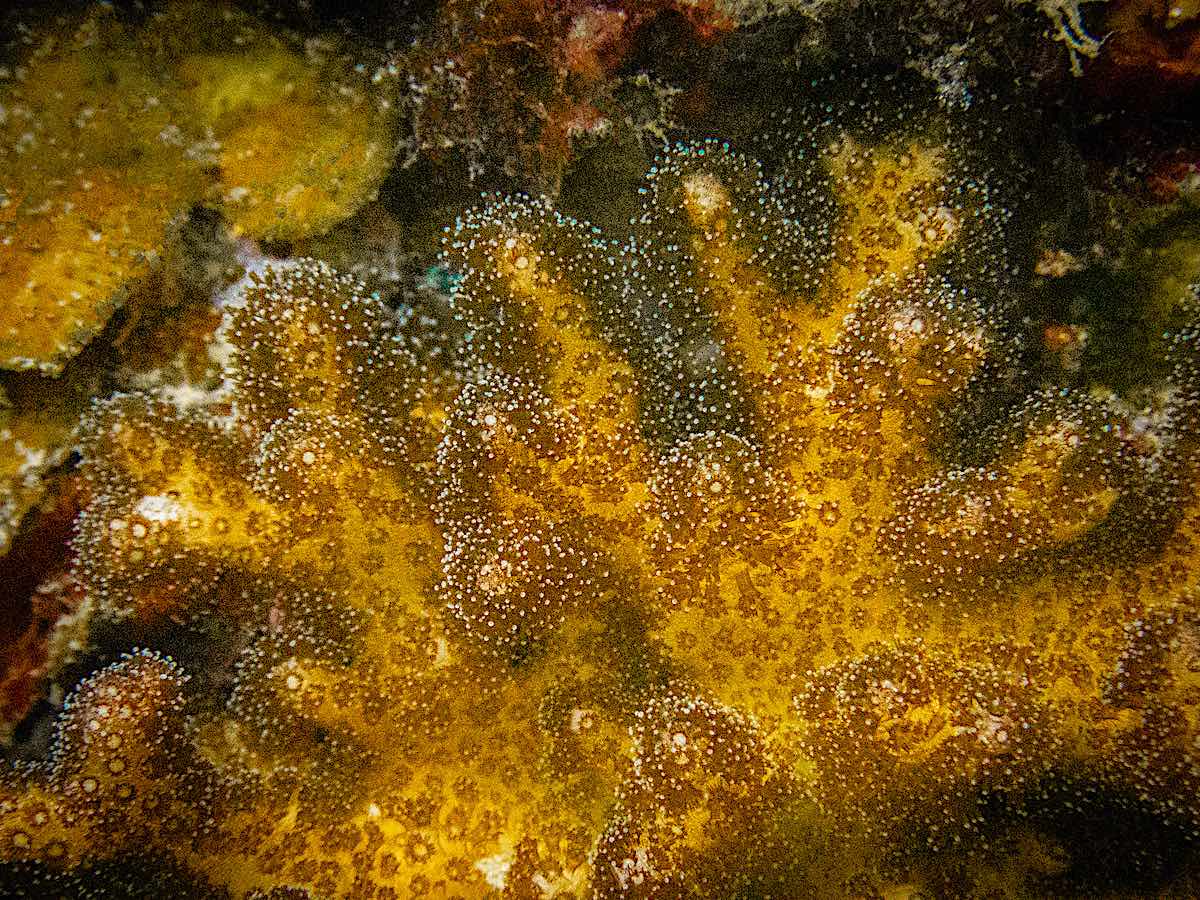
Buoyancy Assessment for Scientific Diving
Prior to all Conservation Diver training courses candidates must satisfactorily complete a buoyancy assessment with a Conservation Diver Instructor.
This includes being able to swim slowly with legs elevated to avoid damaging the reef with your head in the down position.
You must be able to record data on an underwater slate whilst keeping an eye on the reef, maintaining buoyancy and not touching the reef with any part of your body or equipment.
You should also be able to maneuver easily in a manner that avoids any disturbance of the reef.
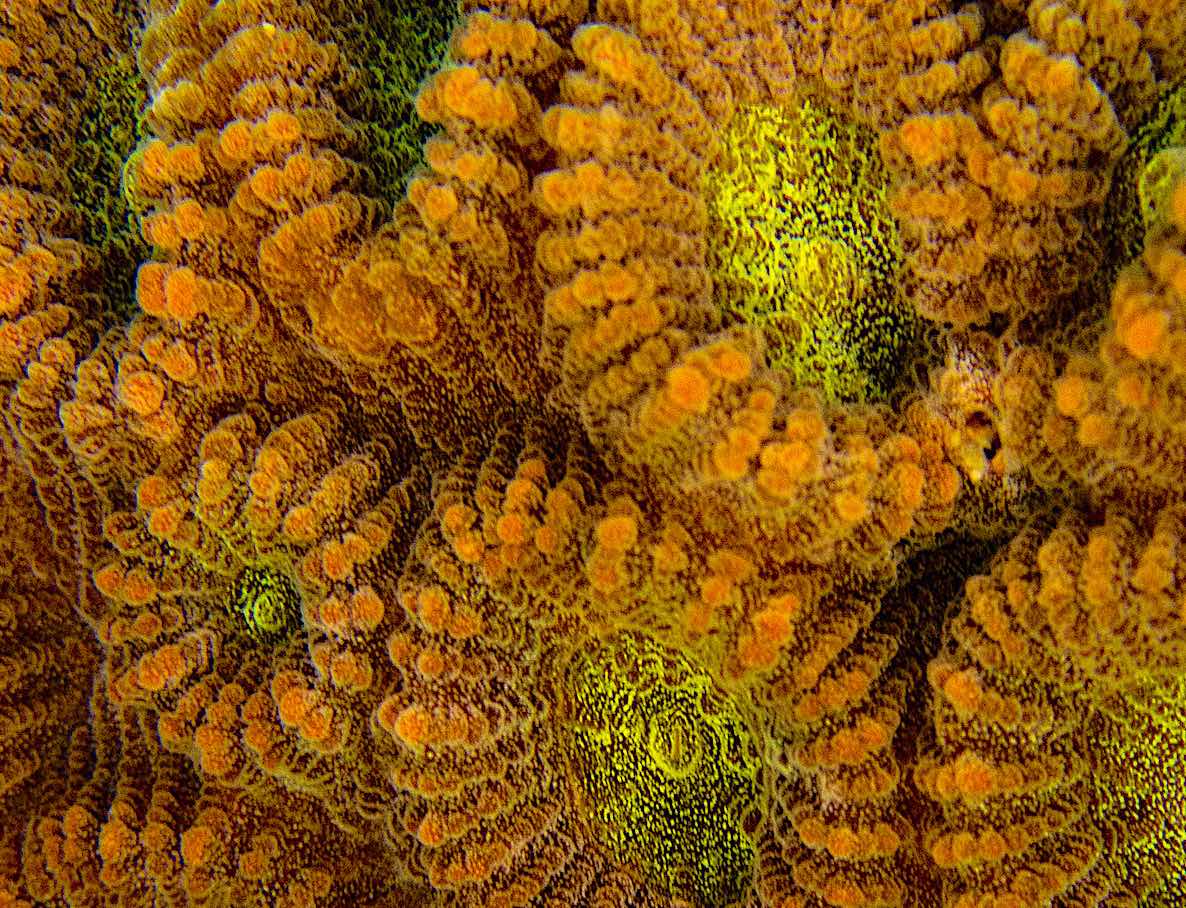
Coral Taxonomy Course Training Dives
Training Dive 1: Coral Taxonomy Identification dive focused on learning coral anatomy and skeletal morphology.
During this dive your instructor will conduct three exercises.
- Coral forms / arrangements
- Coral Skeletal features
- Draw 4 different Corals & ID
The first relates to the diversity of Coral structure and form.
Coral form refers to how coral polyps are arranged within a coral colony. Your instructor will either point at a coral form and ask you to correctly describe what that form is or will do the opposite and point at descriptions written on the slate, and ask you to show examples of that particular form on the reef.
The second exercise relates to coral skeletal features and specifically you will look at wall and Columella structure, continuity of Costae, Septa & Paliform lobes.
Your instructor will have descriptions of coral forms written on an underwater slate and you will then identify examples of particular coral forms you see during the dive.
Finally, you will be asked to sketch 4 different corals and identify them during the debrief.
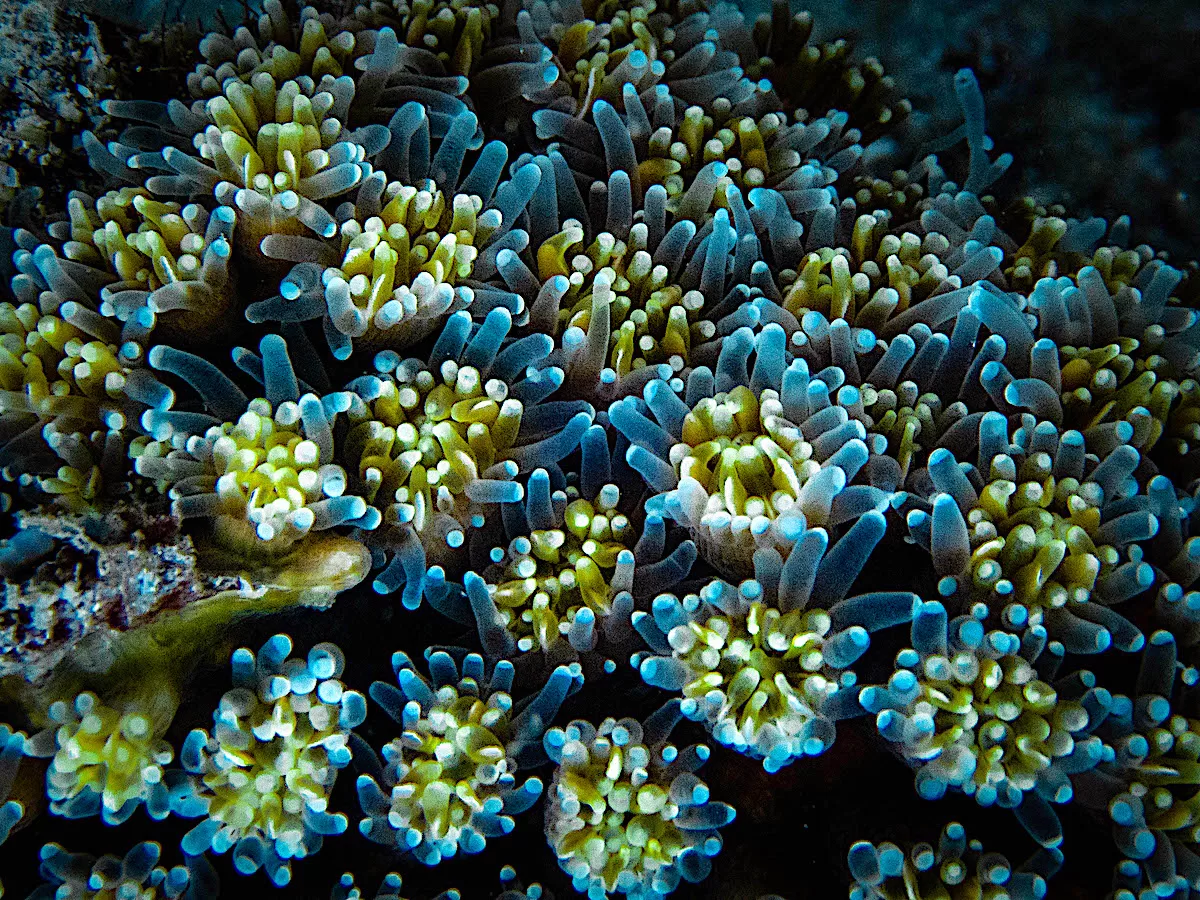
Collecting Data on Coral Genera
Dive 2: Coral taxonomy survey dive specifically taking data on coral genera – can either be the EMP substrate dive or a quadrat survey.
Prior to the dive we will note down the 18 Genera that you learn about during the knowledge development sessions on an underwater slate. You can make notes to easily remember methods of identifying the corals.
During the dive your Conservation Diver Instructor will point out corals on the reef and you must identify them correctly using the notes you have written on the slate.
Frequently Asked Questions
What is the cost of the Coral Taxonomy & Identification course?
Coral Taxonomy & Identification course costs 6,000 baht per person. This price includes all equipment, certification, diver insurance, your Coral Taxonomy & Identification e-learning manual and two coral taxonomy training dives.
We believe this offers great value for a 1-day scientific based specialty course and is competitively priced for students who will learn about 19 different coral genus and gain a specialized certification in Coral Taxonomy.
What is the minimum age for the Coral Taxonomy & Identification course?
Minimum age to sign up for the Coral Taxonomy & Identification course is 12 years of age.
However, there are additional prerequisites for individuals wanting to sign up for this scientific course.
These prerequisites include being an Advanced diver and/or a Buoyancy assessment and students must have completed the Ecological Monitoring Program (EMP) prior to starting the Coral Taxonomy & Identification course.
What is the Coral Taxonomy & Identification course about?
Conservation Diver Coral Taxonomy & Identification course introduces students to coral taxonomy for the first time. Covering 19 different genus the course teaches students how to identify corals underwater based on anatomy and skeletal morphology.
You will also learn about the taxonomic system, the organization for classifying hard corals, and the names of coral families and genera.
The Coral Taxonomy & Identification course provides a great foundation for students interested in studying coral reefs.
Signing up for the Coral Taxonomy & Identification course will broaden student knowledge of hard coral evolution and anatomy, and the diversity of Coral structure and form.
How long does the Coral Taxonomy & ID course take to complete?
Coral Taxonomy & Identification course is scheduled over 1 day and includes 2 dives on the coral reefs around Koh Tao.
Upon successful completion of all performance requirements students will earn the Conservation Diver Coral Taxonomy & Identification certification.
Prior to arrival Students can complete e-learning, then participate in the instructor led presentation, which includes the Coral Tax ID Quizzes helping you to identify 19 different genera of coral.
Knowledge development is followed by two practical in-water dives where you will apply the knowledge you learn identifying different genus of corals.
Is the Coral Taxonomy & ID course available in Thailand?
Conservation Diver Coral Taxonomy & Identification course and a full curriculum of Scientific conservation focused courses, is available at Black Turtle Dive, an official Conservation Diver Training center, located on Koh Tao Island in Thailand.
